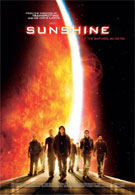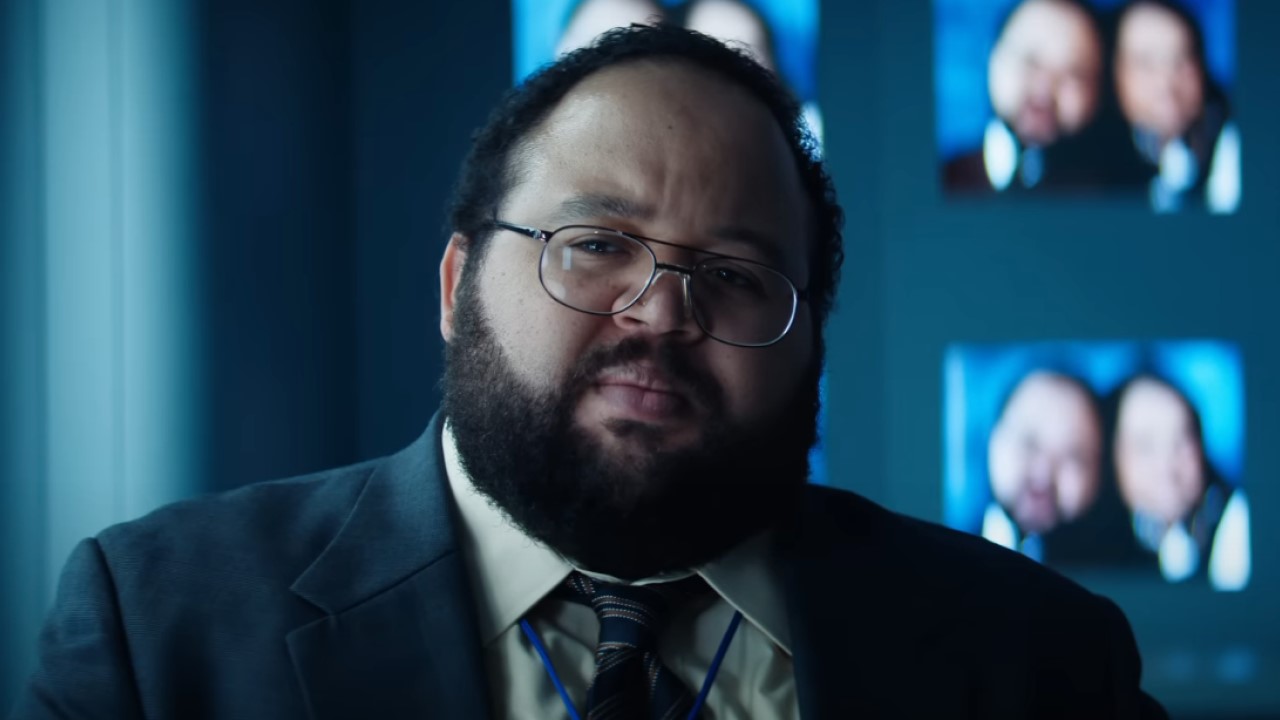Danny Boyle has done it again: Sunshine is a rare example of an end-of-the-world film that gets it right. There are characters to care about amid the destruction, snappy dialogue to parallel the striking visuals, and a sense of tension to match the excitement. Rarely has the apocalypse been so inviting.
With the exception of A Life Less Ordinary, Boyle’s admittedly botched attempt at a romantic comedy, the director has a knack for shaking up genres. Trainspotting raised the bar for drug movies, 28 Days Later made zombies cool again, Millions showed his ability to tell a childlike fable with accessible maturity. It’s equally impressive that he made Sunshine, a special effects extravaganza, on a measly $40 million budget, compared with the bloated $125 million-plus cost of Armageddon. His “quality over quantity” take is refreshing like a sip of ice cold lemonade in the heat of summer.
Speaking of heat, it’s the core of Sunshine, an oddly chipper title for a movie about the sun burning out and leaving the world, set in 2057, frozen in a solar winter. A spacecraft named Icarus II--the first of which set out seven years before and never made it--carries eight passengers on a mission to reignite the sun: Capa (Cillian Murphy), the physicist who knows how to activate the bomb; Mace (Chris Evans), the ship’s engineer; Cassie (Rose Byrne), the pilot; Harvey (Troy Garrity), the communications officer; Searle (Cliff Curtis), the psychiatrist; Trey (Benedict Wong), the navigator; Corazon (Michelle Yeoh), the botanist in charge of maintaining the food and oxygen; and Captain Kaneda (Hiroyuki Sanada).
It’s a loaded, well-prepared ship, but anything that can go wrong does go wrong--Murphy’s Law tends to transcend Earth’s orbit. Once Trey mistakenly foils the coordinates, an accident that flushes the remaining particles of his sanity, their neatly mapped out plan quickly snowballs into several worst case scenarios. There’s a bit of a Final Destination game going on in this action sci-fi thriller, and you never know who’s next or how that person will meet his or her fate.
But unlike many movies of this kind, that’s not the most (or only) interesting element. It’s all in the little moments: For example, an opening scene of Searle staring adoringly, almost hypnotically, at the sun sets the tone for its strangely bewitching powers. Capa’s video home before they lose contact with Earth hints at the mixed emotions of the crew--they are hopeful that they will come home, but they know they might not, and that uncertainty takes a toll on them. For Mace, it results in throwing a few too many punches; for Harvey, a meltdown or two.
People will try to pigeonhole Sunshine as a 2001 knockoff, but it’s more like a throwback to a few different like-minded genre pieces, while still maintaining its own identity. The navigational computer in Icarus II, voiced by Chipo Chung, provides a blunt female counterpart to 2001’s HAL. Mace at one point makes a fitting Alien wisecrack. There’s a captivating scene of three spacemen getting beamed from one ship to another, a la Star Trek. And then there’s a brief homage to the sacrificial button-push in Armageddon.
Beyond these minor elements however, it’s unlike anything you’ve ever seen before. Sunshine is easily one of the most eye-pleasing movies ever created, giving a new perspective of outer space and a heightened appreciation of the sun, in all its glowing beauty. It’s understandable why the characters are drawn to it, in spite of its fatal possibilities--one man gets engulfed in a tidal wave of fireball heat because he literally can’t look away. Neither will you.
If the movie has one downfall, it’s the introduction of a tangible villain toward the end, on top of more interesting, more effective unseen evils. But otherwise, Sunshine has nearly everything going for it: flawed but sympathetic characters, great ensemble acting, stimulating dialogue (courtesy of Alex Garland’s script), a satiable amount of action, and enough twists and turns to keep you guessing.
Yep, Boyle has definitely done it again.











